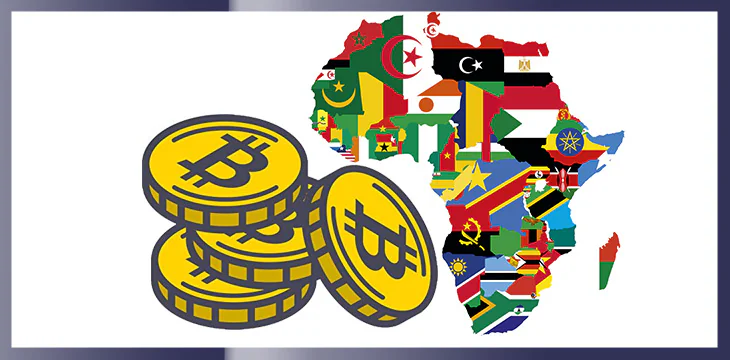
|
Getting your Trinity Audio player ready...
|
Cryptocurrencies and blockchain technology could be the remedy that the African continent craves. Eliminating corruption, facilitating cheap and fast remittances, conducting credible elections—these are just a few of the potential benefits the continent can reap. However, regulators in Africa are still dragging their feet.
And it’s not because Africa isn’t receptive to new technology. The continent has previously proven that it can adapt to new technology extremely fast. Mobile phones are the best example. Mobile phone usage in Africa grew from a mere 3% to over 80% in just a decade. Internet penetration has also taken root quite quickly, with some countries registering over 1000% rises in the past decade.
However, the regulators haven’t formulated any laws which can foster the growth of the crypto and blockchain industry. This is despite the great need for these solutions in the region. According to a recent report by Ashlin Perumall at the Daily Maverick, two-thirds of the adults in Africa are unbanked, the second highest proportion in the world. Perumall is a senior associate at leading global law firm, Baker McKenzie’s Johannesburg office.
And it’s not just the unbanked that need cryptos and blockchain, he notes. Africa is heavily dependent on remittances. In some countries such as Lesotho, over a third of the GDP stems from remittances. Pemurall writes:
“These, among many other factors, have created the ideal environment for new ways of moving value and present many of the challenges that distributed ledger solutions aim to solve.”
And yet, no African country has implemented any regulations to govern the industry. It’s the European countries like Malta and Asian countries like Japan and South Korea that are setting the pace. Africa is lagging behind despite being handed a prime opportunity to burst ahead and set the pace for the other continents.
Quoting the Baker McKenzie’s “Guide to Blockchain and Cryptocurrency in Africa,” Perumall noted that different countries have moved at different paces when handling cryptos. Most have adopted a wait-and-see approach, waiting to see how their counterparts handle the nascent industry. Others have started taking a few measures to engage with the industry and figure the best way forward. A few have remained anti-crypto such as Namibia.
Baker McKenzie’s study of the continent’s crypto environment revealed that Nigeria, Kenya and South Africa are still the front runners, much like with most other technological advancements. Kenya has appointed a task force looking into cryptos and blockchain. Several blockchain startups are also thriving in the East African country.
Nigeria leads the West African region, with the country’s central bank working on a white paper that could form the blueprint for crypto regulations in Africa. In South Africa, the central bank is working closely with blockchain and fintech startups to figure out the best way forward.
Perumall concluded:
“There are many opportunities around the use of blockchain and cryptocurrency in Africa. However, it is clear that there are also substantial challenges. Considering the speed at which this technology is being embraced on the continent, there is great potential for African countries to develop regulations governing fintech use, with the intention of incentivising foreign direct investment.”
Recommended for you
Lorem ipsum odor amet, consectetuer adipiscing elit. Elit torquent maximus natoque viverra cursus maximus felis. Auctor commodo aliquet himenaeos fermentum
Lorem ipsum odor amet, consectetuer adipiscing elit. Accumsan mi at at semper libero pretium justo. Dictum parturient conubia turpis interdum

 11-13-2024
11-13-2024 


